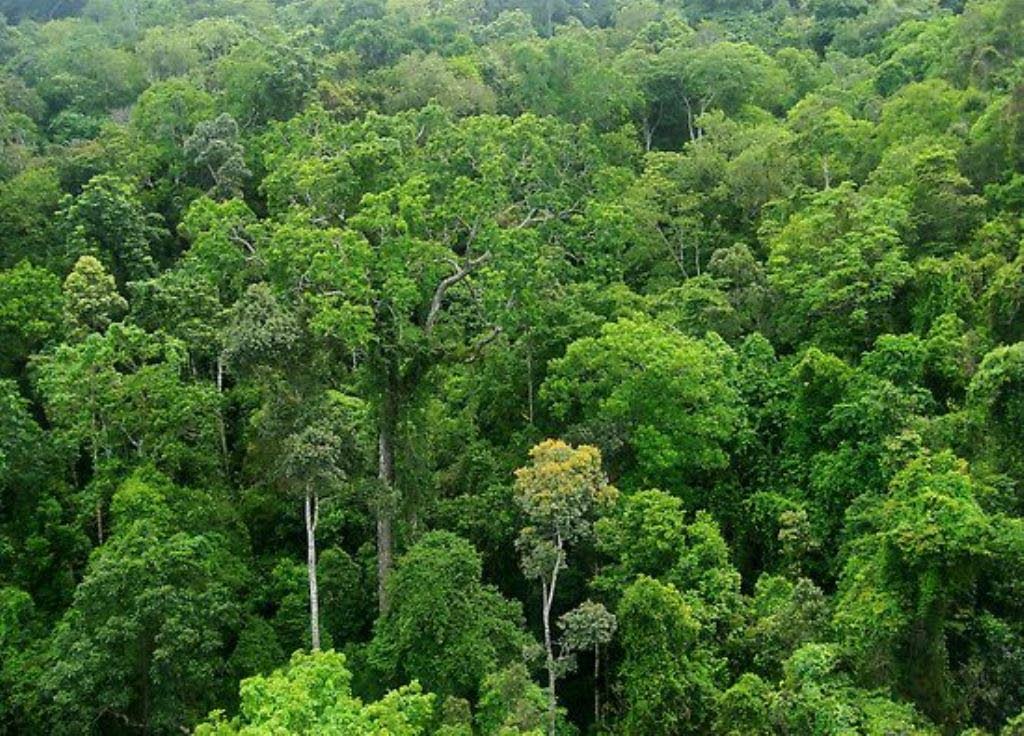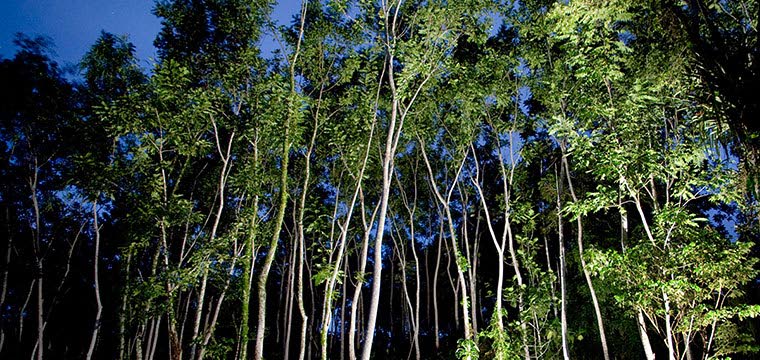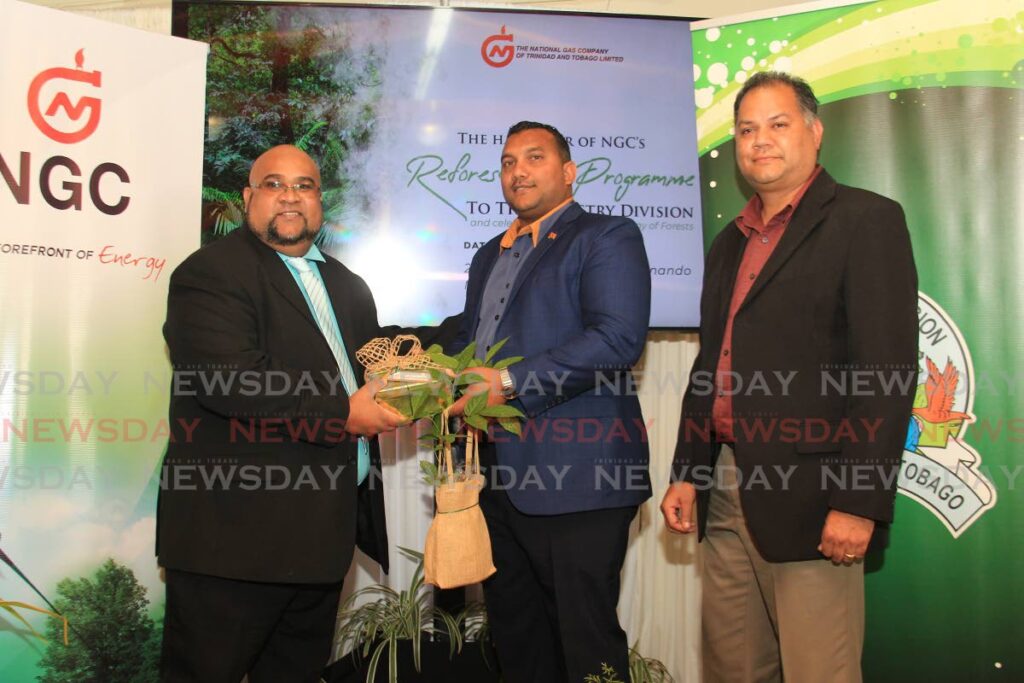Beyond 315: NGC helps restore forests as part of green agenda

Beyond 315. This is the National Gas Company's (NGC) vision for its reforestation programme to help replant trees in areas once cleared for its pipelines.
It signed over 80 of 315 hectares of land to the Forestry Division of the Ministry of Agriculture, Land and Fisheries under its programme at the San Fernando Hill, on Tuesday.
This move was part of the NGC’s environmental clearance certificate requirements. Its reforestation programme ensured that the company replanted the number of trees it cleared to install pipelines from Guayaguayare to Point Lisas.
Though 315 is more than what they cleared to carry out its processes, the project was still completed to offset carbon dioxide emissions. NGC said in 2021, 10,373 tonnes of carbon have been sequestered as a result of the company’s reforestation efforts.
The first phase of the project involved the rehabilitation of 105 hectares on the south-eastern forest conservancies and the second phase resulted in the reforestation of 210 hectares in the Morne L’Enfer Forest Reserve. The 315 hectares are filled with cedar, mahogany, balata, mahoe, poui among others.

NGC director Dr Donnie Boodlal said, “What began in 2005 as an initiative to restore forest acreage cleared during pipeline construction activities quickly became a signature sustainability project for NGC. We have aligned our operations, processes, strategies and vision to the targets of the UN Sustainable Development Goals (SDGs).
In his remarks, UWI professor emeritus John Agard said he was the principal investigator of these hectares and even took a few of his students to cover the project. He explained that when he did his investigations, he'd use the roots of the trees that were already removed by NGC to give his class a hands-on learning experience. Agard is the former head of the department of life sciences at UWI.
Boodlal said the company continued to focus on building industries around arts and culture, sport and community development, but had now introduced "an extensive green agenda portfolio, which is largely concerned with climate action."
"We are intent," he declared, "on reducing the carbon footprint of our business and wider industry, through energy-efficiency mechanisms, clean-energy technologies, a heavy focus on methane mitigation, advocacy and public-education programmes.”
He also noted that the handover coincidentally took place on the International Day of Forests. This day was proclaimed by the United Nations in 2012 and is meant to celebrate and bring awareness to the importance of all types of forests. It is also meant to encourage countries to undertake local, national and international efforts to organise activities involving forests and trees like that of the initiative done by NGC.
This year's theme was Forests and Health and conservator of forests Denny Dipchansingh gave a recap of the benefits of plants and said, "It provides the water, captures the carbon which helps mitigate climate change. It supports agriculture, food security, it provides jobs unlike deforestation. It provides medical purposes, flood control, regulates microclimates, and the list goes on."

Boodlal said forests are explicitly tied to one of the UN’s SDGs, but "can support other sustainability targets linked to health, food security and economic diversification. This is why we at NGC are now looking at how we can integrate agroforestry and eco-tourism components into a sequel to our reforestation programme that we are calling: Beyond 315.”
NGC’s Beyond 315 programme will teach farmers and artisans how they can sustainably leverage the forests to support their livelihoods. Boodlal said the company also wants to promote these areas as retreats for both sanctuary and adventure to the public. This comes in the form of education as with consultation from the Forestry Division, community reforestation groups were introduced to the fundamentals of setting up plant nurseries, spread of seedlings, beekeeping and key business skills.
Boodlal added, “This next chapter is above all an avenue for us to connect people with our forests – to help our children build the kinds of relationships and attachments that we had with trees in our childhood days. While they may not take kindly to the guava whip, they can certainly share our joy in eating fruit off a tree or picnicking under a poui, if we can rekindle the connection between mankind and nature, revive that reverence and respect of days gone by, and seed an enduring appreciation for the value of our forests.”
The first phase of Beyond 315 was a five-day beekeeping workshop which introduced the Rio Claro Reforestation Group to the aspects of setting up a functioning apiary. NGC’s next step is to plan and coordinate with the Apiary Unit and Forestry Division to identify lands near Union Village, Rio Claro, to set up an apiary for the group to work with and potentially turn into a business.
Minister in the Ministry of Agriculture, Land and Fisheries Avinash Singh said, “Other corporate entities should seek to emulate the move of the NGC to achieve its goals. The task of protecting our forests is not to be a solitary initiative by the government.
"I want to encourage all of us to reflect on activities undertaken, reassess the approaches are utilised and renew our commitment to the cause of forest conservation. Let us work together to ensure that our forests continue to provide essential benefits for communities for generations to come.”
Speaking to the media after the ceremony, Singh said oil and gas companies also have the option of buying CO2 carbon sequestration which will offset what is emitted in the environment. In this process, carbon-dioxide emissions are captured from power plants. The captured emissions can then be injected into depleting oil reserves, which can increase recovery through an enhanced oil recovery process.
Also at the ceremony were parents, students and teachers from the Rio Claro Presbyterian School.


Comments
"Beyond 315: NGC helps restore forests as part of green agenda"